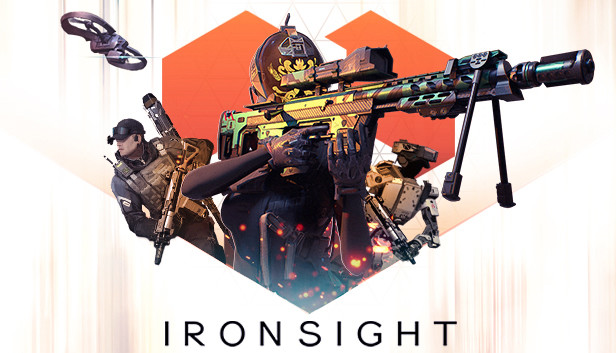The Fall of Ryujinx: Nintendo's Iron Grip on Emulation
October 3, 2024, 4:17 am

Location: United States, California, San Francisco
Employees: 1001-5000
Founded date: 2008
Total raised: $350M
In the world of gaming, emulators are like the shadows that dance behind the bright lights of consoles. They allow players to relive the magic of their favorite games on different platforms. However, these shadows can be fleeting. The recent closure of the Ryujinx emulator serves as a stark reminder of the power that companies like Nintendo wield over the gaming landscape.
Ryujinx, a popular open-source emulator for the Nintendo Switch, has officially shut its doors. The project's creator, known as GDKChan, removed the repository from GitHub, leaving fans and developers in shock. This decision came after Nintendo allegedly pressured GDKChan to cease all operations related to the emulator. The details remain murky, but the implications are clear: Nintendo is tightening its grip on its intellectual property.
The Ryujinx saga is not an isolated incident. It fits into a larger narrative of Nintendo's ongoing battle against emulation. Just months prior, the company filed lawsuits against the creators of Yuzu, another prominent Switch emulator. The stakes are high. In March, Yuzu's developers announced they would dissolve the project and pay Nintendo $2.4 million to settle copyright infringement claims. The Citra emulator, designed for Nintendo 3DS games, also faced a similar fate, with its developers removing all related content from public access.
This relentless pursuit of emulation projects raises questions about the future of gaming preservation. Emulators serve as digital time capsules, allowing players to experience games that may no longer be available on current hardware. Yet, as Nintendo cracks down on these projects, the risk of losing access to gaming history looms large.
The impact of these closures extends beyond just the developers. Communities built around these emulators are now left in disarray. Discord servers have been shut down, and GitHub repositories have been wiped clean. The vibrant discussions and collaborations that once thrived in these spaces have been silenced. For many, these emulators were not just tools; they were gateways to nostalgia and shared experiences.
Nintendo's actions are part of a broader strategy to protect its brand and the hard work of its developers. The company argues that emulators undermine innovation and threaten the gaming industry. However, this perspective is contentious. Critics argue that emulators can actually enhance the gaming experience by providing access to older titles and fostering a culture of preservation.
The situation has become increasingly dire for developers in the emulation scene. Many have opted to abandon their projects altogether. Davide Berra, known for his Game Boy Advance and Game Boy Color emulators, recently removed his apps from the Google Play Store. He cited the need to prioritize his family over the stress of ongoing legal battles. This sentiment resonates with many in the community who feel the weight of Nintendo's legal actions.
As Nintendo continues to issue DMCA takedown requests, the emulation landscape is shifting. In March alone, the company filed 25 requests to block GitHub repositories linked to tools that bypass game protections. The crackdown has not only affected Ryujinx and Yuzu but has also led to the removal of other forks and related projects. GitLab and Discord have also been forced to comply with Nintendo's demands, further stifling the emulation community.
The closure of Ryujinx is a significant blow, but it also highlights a growing trend in the gaming industry. As companies become more protective of their intellectual property, the future of emulation hangs in the balance. The rise of subscription services and digital storefronts has changed the way players access games. Many older titles are becoming increasingly difficult to find, making emulators a vital resource for preservation.
In this digital age, the line between homage and infringement is often blurred. Emulators can be seen as a form of tribute to the games that shaped the industry. They allow new generations to experience classics that might otherwise fade into obscurity. Yet, as companies like Nintendo tighten their grip, the risk of losing these digital relics grows.
The fate of Ryujinx serves as a cautionary tale for developers and enthusiasts alike. It underscores the need for a balanced approach to intellectual property rights. While protecting creativity is essential, so too is the preservation of gaming history. The community must advocate for a future where emulation can coexist with commercial interests.
As the dust settles on the Ryujinx closure, one thing is clear: the battle for the soul of gaming continues. The shadows of emulation may flicker, but they will not be extinguished easily. The passion of developers and players alike will keep the flame alive, even in the face of adversity. The future of gaming preservation hangs in the balance, and the outcome remains uncertain.
Ryujinx, a popular open-source emulator for the Nintendo Switch, has officially shut its doors. The project's creator, known as GDKChan, removed the repository from GitHub, leaving fans and developers in shock. This decision came after Nintendo allegedly pressured GDKChan to cease all operations related to the emulator. The details remain murky, but the implications are clear: Nintendo is tightening its grip on its intellectual property.
The Ryujinx saga is not an isolated incident. It fits into a larger narrative of Nintendo's ongoing battle against emulation. Just months prior, the company filed lawsuits against the creators of Yuzu, another prominent Switch emulator. The stakes are high. In March, Yuzu's developers announced they would dissolve the project and pay Nintendo $2.4 million to settle copyright infringement claims. The Citra emulator, designed for Nintendo 3DS games, also faced a similar fate, with its developers removing all related content from public access.
This relentless pursuit of emulation projects raises questions about the future of gaming preservation. Emulators serve as digital time capsules, allowing players to experience games that may no longer be available on current hardware. Yet, as Nintendo cracks down on these projects, the risk of losing access to gaming history looms large.
The impact of these closures extends beyond just the developers. Communities built around these emulators are now left in disarray. Discord servers have been shut down, and GitHub repositories have been wiped clean. The vibrant discussions and collaborations that once thrived in these spaces have been silenced. For many, these emulators were not just tools; they were gateways to nostalgia and shared experiences.
Nintendo's actions are part of a broader strategy to protect its brand and the hard work of its developers. The company argues that emulators undermine innovation and threaten the gaming industry. However, this perspective is contentious. Critics argue that emulators can actually enhance the gaming experience by providing access to older titles and fostering a culture of preservation.
The situation has become increasingly dire for developers in the emulation scene. Many have opted to abandon their projects altogether. Davide Berra, known for his Game Boy Advance and Game Boy Color emulators, recently removed his apps from the Google Play Store. He cited the need to prioritize his family over the stress of ongoing legal battles. This sentiment resonates with many in the community who feel the weight of Nintendo's legal actions.
As Nintendo continues to issue DMCA takedown requests, the emulation landscape is shifting. In March alone, the company filed 25 requests to block GitHub repositories linked to tools that bypass game protections. The crackdown has not only affected Ryujinx and Yuzu but has also led to the removal of other forks and related projects. GitLab and Discord have also been forced to comply with Nintendo's demands, further stifling the emulation community.
The closure of Ryujinx is a significant blow, but it also highlights a growing trend in the gaming industry. As companies become more protective of their intellectual property, the future of emulation hangs in the balance. The rise of subscription services and digital storefronts has changed the way players access games. Many older titles are becoming increasingly difficult to find, making emulators a vital resource for preservation.
In this digital age, the line between homage and infringement is often blurred. Emulators can be seen as a form of tribute to the games that shaped the industry. They allow new generations to experience classics that might otherwise fade into obscurity. Yet, as companies like Nintendo tighten their grip, the risk of losing these digital relics grows.
The fate of Ryujinx serves as a cautionary tale for developers and enthusiasts alike. It underscores the need for a balanced approach to intellectual property rights. While protecting creativity is essential, so too is the preservation of gaming history. The community must advocate for a future where emulation can coexist with commercial interests.
As the dust settles on the Ryujinx closure, one thing is clear: the battle for the soul of gaming continues. The shadows of emulation may flicker, but they will not be extinguished easily. The passion of developers and players alike will keep the flame alive, even in the face of adversity. The future of gaming preservation hangs in the balance, and the outcome remains uncertain.

